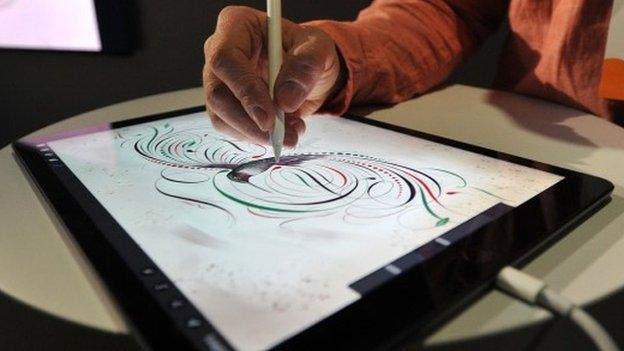MWC 2016: Huawei unveils MateBook Windows 10 tablet
- Published
Huawei's MateBook is designed to rival Windows laptops
Huawei has announced its first Windows 10 tablet, a day before Mobile World Congress in Barcelona begins.
The MateBook is designed to be an alternative to laptops and is thinner than Microsoft's rival Surface Pro 4 thanks to its use of a USB-C port.
The Chinese firm is already the world's third-bestselling mobile phone-maker, but until now had only made tablets powered by Android.
Experts said it made good business sense to expand into the new category.
However, there was no mention of the much-rumoured P9 smartphone at Huawei's event.
When questioned about the no-show, the firm told the BBC it did not discuss future products.
Thinner, lighter
The MateBook features a 12in (30.5cm) display and can be clipped into an add-on keyboard and used with a stylus.
Its advantages over Microsoft's Surface Pro 4 are that it is:
nearly 20% thinner, measuring 6.9mm (0.3in) deep
about 20% lighter, weighing 630g (1.4lb)
has a fingerprint sensor built into its side, unlike the Surface Pro which requires its cover to be attached to use the feature
However, the disadvantages are that Huawei's machine is only offered with a sixth generation Core M processor, and not Intel's more powerful Core i5 or i7 chips.
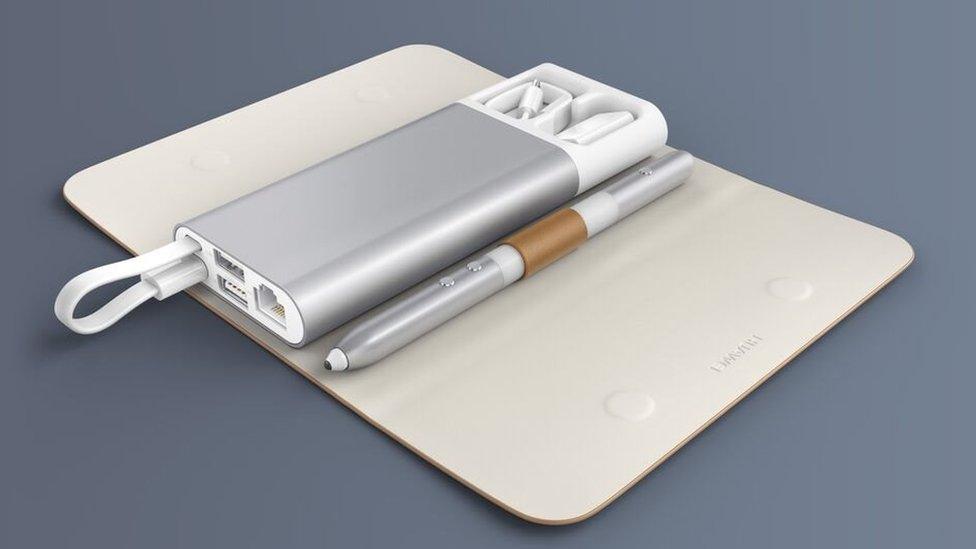
The tablet is sold alongside the MateDock adapter and a laser-equipped MatePen stylus
In addition, the decision to rely on a USB-C port means that older peripherals cannot be attached directly to the machine and it lacks a built-in display port.
In order to gain USB 2 and external display connections, users will need to carry an adapter, which also includes an ethernet port. The tablet does, however, have a built-in SD memory card slot.
One other unusual feature about the machine is that its stylus includes a laser pointer at the opposite end to its nib.
Marketing costs
One company watcher said he was "totally underwhelmed" by the product, but said he could understand why it had been developed.
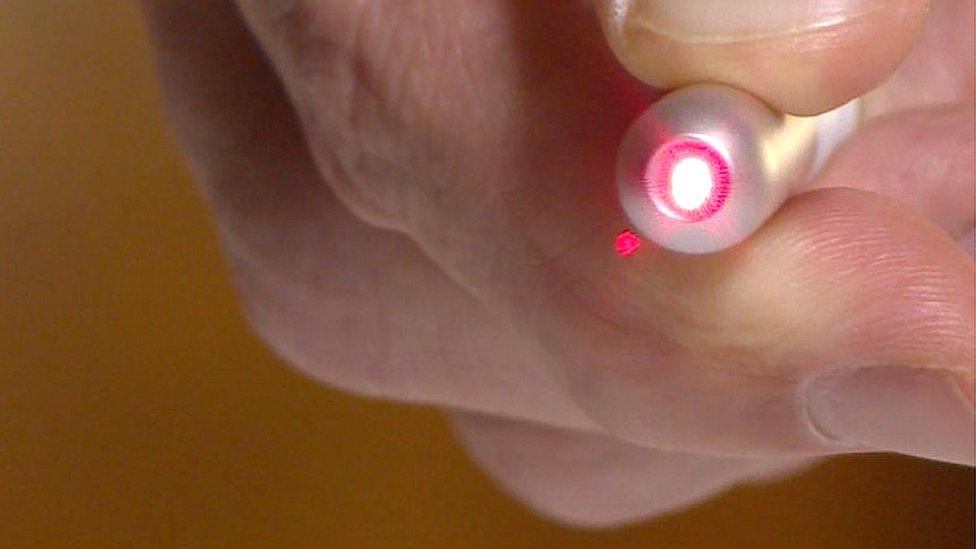
The MateBook's stylus has a built-in laser pointer
"I expect that Huawei will receive contributions to its marketing costs from Intel and Microsoft," said Ben Wood from the CCS Insight consultancy.
"Both of them will want to go to great lengths to help it promote the product, and that takes out some of the risk for Huawei.
"I should add that it has also been beautifully engineered. But even so, this is a segment of the market that is getting very crowded very quickly with Lenovo and Samsung also having recently announced similar products."
Apple also put its iPad Pro on sale in November, which likewise has a stylus and clip-on keyboard but still uses the firm's mobile iOS operating system.
Detachable tablets
PC shipments are forecast to fall further this year - research firm Gartner has predicted they will decrease by about 1% - and tablet shipments as a whole are expected to see an even steeper drop.
But the so-called "detachable tablet" category, which includes the MateBook, is growing.
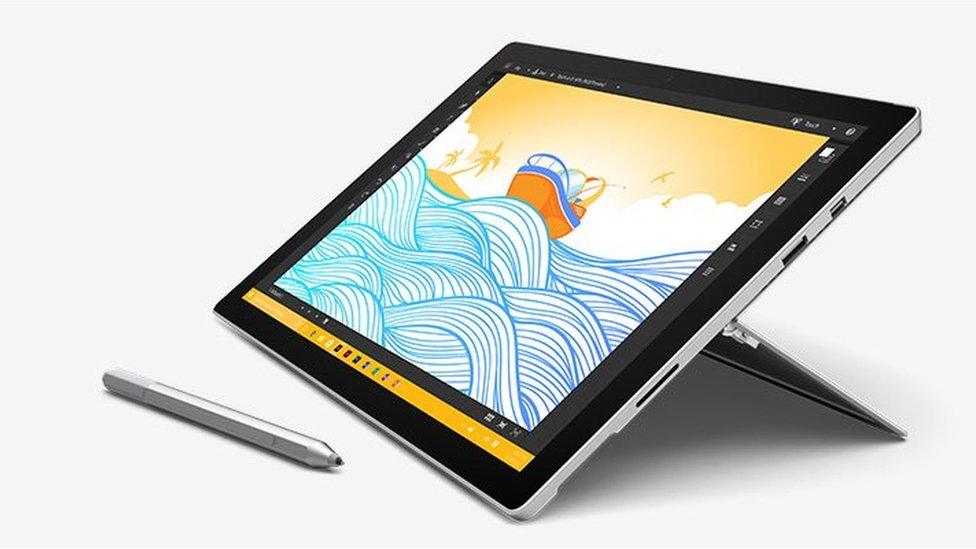
The Surface Pro 4 is thicker and heavier, but benefits from more built-in ports
Sales were up 75% in 2015 and are forecast to double again this year, according to market intelligence firm IDC.
"It's a product category that we are going to see more people get involved in as it's a good way for the mobile players to attack the PC market," commented Tim Coulling, an analyst at the tech consultancy Canalys.
"But the thing is, Microsoft Surface Pro benefits from the company's brand name and also makes use of the firm's business-to-business sales channels."
These are things where Huawei's MateBook could be at a disadvantage, he added.
The entry-level MateBook will cost $699 (£485) when it goes on sale later this year, making it $100 cheaper than the basic Surface Pro 4.
To purchase its keyboard, MatePen and MateDock will cost an additional $277.

Follow all the BBC's MWC coverage via the "Mobile World Congress 2016" tag in our news app.
You can also keep track of our technology correspondent Rory Cellan-Jones and the rest of the team covering the Barcelona event via a dedicated Twitter list, external.
- Published21 February 2016
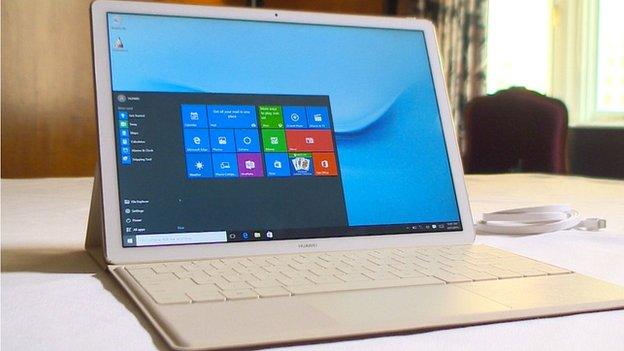
- Published21 February 2016
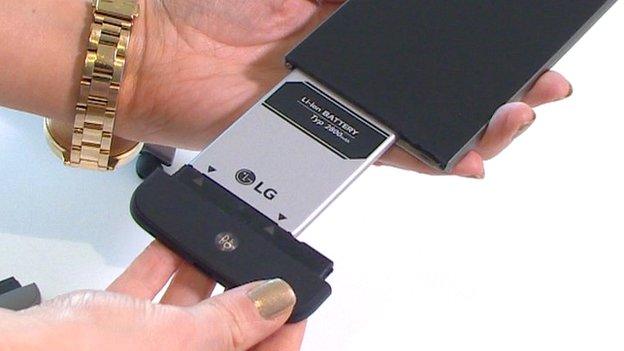
- Published6 October 2015
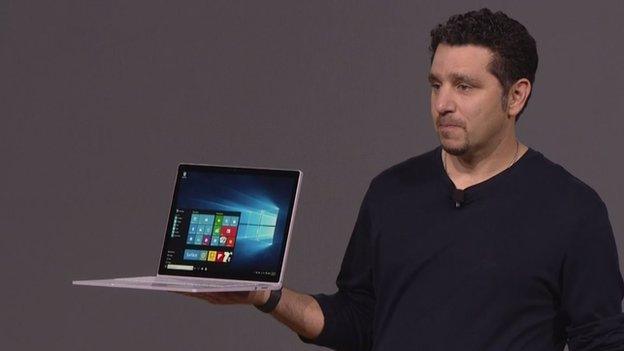
- Published10 September 2015
